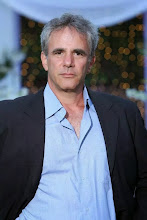"I also see the possibility — not a probability, but a chance — that an agreement could open up Iran and strengthen those inside pushing for more freedom. Lest you think this is foolish, consider that both Ronald Reagan and Margaret Thatcher thought that betting on Mikhail Gorbachev could lead to change in the Soviet Union. ('I like Mr. Gorbachev,' Thatcher said. 'We can do business together.') Many of their traditional supporters thought they were dangerously wrong, possibly naive. But they were right.
Moreover, I don’t think that we should give Saudi Arabia or other Sunni states a veto over our foreign policy, and I do think that, in the long run, Israel will be safer, not in greater danger, if we can contain Iran in this way. Israeli Prime Minister Benjamin Netanyahu emphatically disagrees, but I suspect that if the United States gets the deal it wants, many American supporters of Israel will take issue with him."
Dionne would compare Khamenei with Gorbachev? I don't know anyone in the West who is saying, "I like Khamenei" and "We can do business together."
"If the United States gets the deal it wants"? The US already has not gotten the deal it wants. As The Washington Post recently declared in an editorial entitled "Obama’s Iran deal falls far short of his own goals":
"THE 'KEY parameters' for an agreement on Iran’s nuclear program released Thursday fall well short of the goals originally set by the Obama administration. None of Iran’s nuclear facilities — including the Fordow center buried under a mountain — will be closed. Not one of the country’s 19,000 centrifuges will be dismantled. Tehran’s existing stockpile of enriched uranium will be 'reduced' but not necessarily shipped out of the country. In effect, Iran’s nuclear infrastructure will remain intact, though some of it will be mothballed for 10 years. When the accord lapses, the Islamic republic will instantly become a threshold nuclear state.
That’s a long way from the standard set by President Obama in 2012 when he declared that 'the deal we’ll accept' with Iran 'is that they end their nuclear program' and 'abide by the U.N. resolutions that have been in place.' Those resolutions call for Iran to suspend the enrichment of uranium. Instead, under the agreement announced Thursday, enrichment will continue with 5,000 centrifuges for a decade, and all restraints on it will end in 15 years."
Moreover, given that Iran strenuously disputes the claims of the US State Department fact sheet describing the so-called Lausanne "understanding," we can expect further concessions from Obama and friends in order to reach a final agreement by the end of June.
Yes, Dionne wears his naivete on his sleeve.

No comments:
Post a Comment